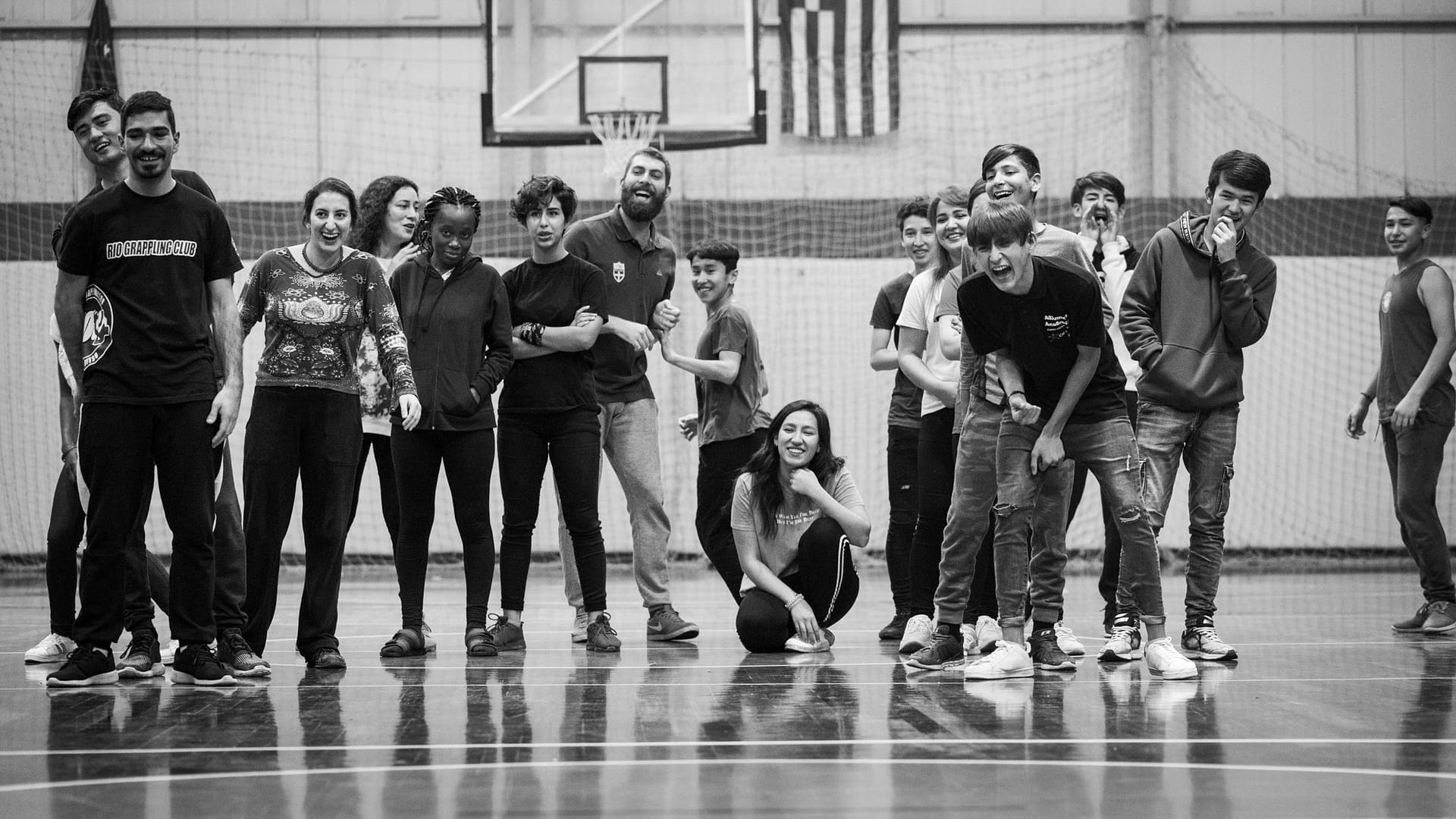In the ‘COMMUNITY’ project, we use a methodology based on sports activity to promote the social inclusion of refugees and asylum seekers in their host community, as well as to facilitate their physical and psychological health. We believe in sport as a tool for social transformation.

Refugees and asylum seekers
In 2021, there were more than 80 million people in the world who had been forcibly displaced from their residences, according to the United Nations High Commissioner for Refugees (UNHCR). These people were forced to flee their countries of origin in search of refuge and safety in another country. They fled due to armed conflict, persecution or violence.
Asylum is “the right of every person to seek protection outside their country when fleeing as a result of conflict or persecution that endangers their life due to their race, religion, gender, sexual orientation, social group, nationality or political opinion. That is, the person has well-founded fears of losing their life”.
UNHCR
Many of these people migrate to the countries of the European Union as a safe space to lead their lives. In most cases, they arrive in a new community where they have no social ties and are unaware of the culture and language. This places them in a highly vulnerable position that can put them at risk of social exclusion.
These circumstances have a great impact on their mental health, in addition to the traumatic incidents they experience on their journeys to reach the host communities and the strong feeling of being uprooted caused by having left their countries of origin. This impact is aggravated by the stress involved in adapting to a new community and dealing with cultural differences.
This is why one of the main ways to help refugees to achieve social inclusion in their host communities is to provide them with the support necessary to regain and maintain their mental health.
“Everyone has the right to seek and to enjoy in other countries asylum from persecution.
“This right may not be invoked in the case of prosecutions genuinely arising from nonpolitical crimes or from acts contrary to the purposes and principles of the United Nations”.
Article 14 of the Universal Declaration of Human Rights

The beneficial role of physical and sports activity
The practice of sports activity promotes people’s psychosocial and motor-skill development in addition to facilitating their physical well-being. It improves self-esteem, confidence, assumption of responsibilities and the ability to work as a team, among other abilities.
There is no distinction between people when they play together. Race, religion, gender, sexual orientation, nationality, political opinion, social or economic condition do not matter. Therefore, the practice of physical activity is proposed as a healthy way to help refugees to overcome the cultural divisions they face in their host community.
If we focus not on competitive sport, but instead on cooperative motor-skill games, sporting activity is a means of interaction that facilitates communication, interrelation and socialisation between people. If this activity is shared between refugees and members of the host community, as is the case with the Socio-Sports Meetings of the ‘COMMUNITY’ project, it also promotes knowledge and mutual understanding between both communities.

Sport as a tool for inclusion and social transformation
Cooperative inclusive sport, developed as a safe space, provides a sense of security and comfort, facilitates positive social interactions between culturally different groups and helps them to connect with each other. This can also lead them to appreciate the different cultural values of other people.
Sports activity gives refugees the opportunity to feel human again and to forget the feelings of isolation produced by the lack of access to the services of the host society. It relieves negative emotions and stress caused by a lack of control in their lives, replacing them with a feeling of relaxation and energy, while encouraging the learning of skills that are transferable to their daily lives.
“Sport has the power to inspire. It has the power to unite people in a way that little else does. Sport can create hope, where once there was only despair. It is more powerful than governments in breaking down racial barriers”.
Nelson Mandela
This is why physical activity facilitates the mental and physical health of refugees, promotes their social inclusion in host communities and improves their ability to adapt, solve problems and coexist. Consequently, it improves their well-being and quality of life.
At the same time, people from the host community who share the activity with them change the way they see refugees, dismantling prejudices and working on issues like racism and discrimination from a critical and constructive point of view.
Therefore, developed in an appropriate context and under the supervision of professionals trained in socio-educational intervention models based on cooperation and teamwork, sport becomes a driving tool for change and social transformation.
This way of understanding sport is what we apply in the Socio-Sports Meetings of the University of Barcelona. If you want to know more, we explain it in depth here.
